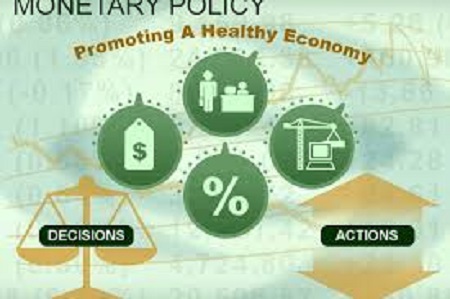
SOME members of the Monetary Policy Committee (MPC) of the Central Bank of Nigeria (CBN) have warned that the forward guidance on at least three rate hikes in 2022 provided the United States (US) FED may lead to more exits of Foreign Portfolio Investments (FPIs) from the local equity market.
This, they say, would also affect foreign currency exposures of the Federal Government and private sector institutions, especially commercial banks.
The members, however, expressed concern about the pace of economic recovery in Nigeria, saying that it is still very weak, and unable to effectively impact on unemployment and poverty.
The MPC held its first meeting for the year 2022 on January 24 and 25 in the light of waning optimism for a robust rebound in global recovery in 2021.
In their personal statement obtained recently, the members noted that the elevated levels of inflation, amid rising budget deficit, insecurity, pressure on exchange rate and poor state of infrastructure are important challenges.
This is compounded by the fact that 2022 is a pre-election year in Nigeria.
The normalisation in the advanced economies and the reaction by several central banks in emerging economies implies that Nigeria cannot be indifferent to this development.
The members – Ahmad Aishah, Adamu Lametek and Adenikinju Adeola Festus – expressed confidence in the strength of the banking system.
According to them, the Banking System Stability Review Report showed that the banking system remains safe, sound, and resilient. Capital adequacy ratio though declined slightly from 15.1 per cent in December 2020 to 14.53 per cent in December 2021, this is still above the prudential requirement of 10.0 per cent.
Non-performing loans ratio fell below the five per cent prudential requirement, for the first time, after a lengthy period.
Other metrics cited by the committee members include; liquidity ratio at 41.33 per cent which was also higher than the 30 per cent prudential requirement. Both Returns on Assets and Returns on Equity fell in December 2021 relative to December 2020.
Operating costs-to-income rose from 68.2 per cent in December 2020 to 73.1 per cent in December 2021. The report also showed growth in total assets, total deposits as well as total credit to the economy.
Gross credit rose from N20.48 trillion in December 2020 to N24.57 trillion in December 2021. The growth in bank credit is largely due to the LDR policy of the CBN.
The report, according to them, also confirmed that credit is increasingly becoming more expensive in the economy.
Similarly, “The financial system maintained its resilience into 2022 as data provided by bank staff indicated stability in broad soundness indicators and an unprecedented improvement in asset quality, even as credit to the private sector continued to grow.
“Key industry aggregates also continued their year-on-year upward trajectory with total assets rising to N59.24 trillion in December 2021 from N50.99 trillion in December 2020, while total deposits rose to N38.42 trillion from N32.21 trillion over the same period.
“Total credit also increased by N4.09 trillion between end-December 2020 and end-December 2021 with significant growth in credit to manufacturing, general commerce and oil & gas sectors,” the personal statement of MPC members observed.
This impressive increase was achieved amidst continued decline in non-performing loans ratio from 5.10 per cent in November 2021 to 4.94 per cent in December 2021 (six basis points below the regulatory benchmark) for the first time in over a decade.
Furthermore, results of stress tests showed resilience of banks’ solvency and liquidity ratios in response to potential severe macroeconomic shocks.
However, they believed that the bank must remain vigilant to proactively manage probable macro risks to the financial system such as lingering spillover effects of the pandemic, winding down of forbearance measures, and myriad risks to financial stability including exchange rate, operational and cyber security risks.
WATCH TOP VIDEOS FROM NIGERIAN TRIBUNE TV
- Let’s Talk About SELF-AWARENESS
- Is Your Confidence Mistaken for Pride? Let’s talk about it
- Is Etiquette About Perfection…Or Just Not Being Rude?
- Top Psychologist Reveal 3 Signs You’re Struggling With Imposter Syndrome
- Do You Pick Up Work-Related Calls at Midnight or Never? Let’s Talk About Boundaries






